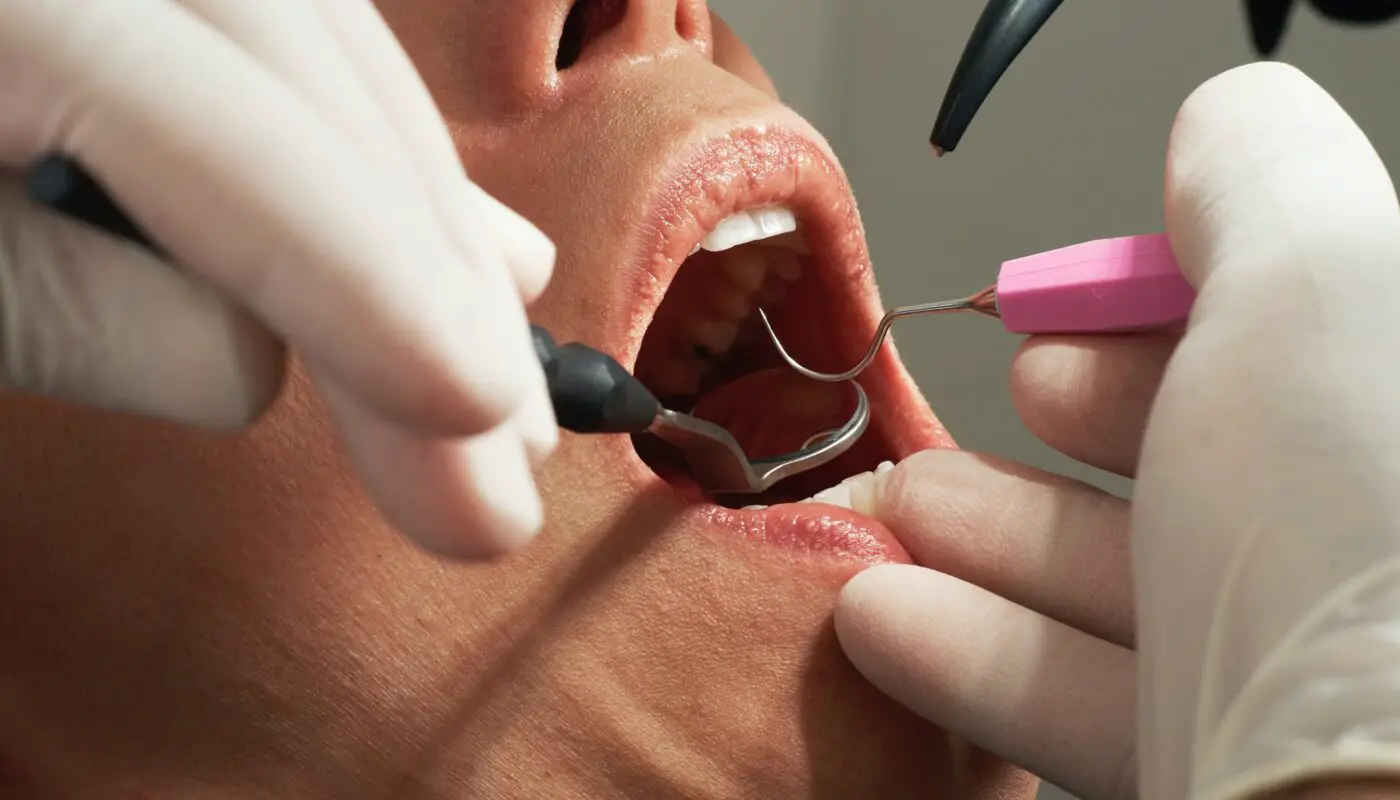Ageing can cause a lot of changes to the body’s organs, bones, cells, and tissues. These changes then proceed to affect several (if not all) parts of the body, including the teeth and gums. Also, because these changes tend to weaken the immune system, older adults are at more risk for different types of oral health issues. Oral health for older adults serves to improve the quality of life and health for seniors.
However, there are ways for older adults to maintain great oral health even with their changing oral health needs. In this piece, we shall be taking a look at some of the common oral health issues that affect older adults and what measures can be taken to address them.
Table of Contents
Oral Health Issues That Commonly Affect Older Adults
As we age, our bodies inevitably change, including our teeth and gums. Despite these changes, maintaining excellent oral health for older adults is not only possible but vital.
Teeth Darkening or Discoloration
This is usually caused by a lifetime of consuming teeth-staining beverages and foods. To some extent, changes in dentin (the bone-like tissues that underlie the enamel) and enamel wear and tear can also cause darkened teeth.
Dry Mouth
Older adults tend to be at more risk for dry mouth. Their advancing age increases their chances of developing different health conditions (high blood pressure, high cholesterol) that require the use of certain medications that can cause dry mouth.
Saliva is very important for maintaining oral health. Its function is to wash away food debris, keep your gums healthy and protect your teeth from decay. When older adults have dry mouths (salivary glands not producing enough healthy saliva), they risk developing issues like; decreased sensitivity to taste, chewing and swallowing difficulties, tooth decay and gum disease, mouth sores and thrush (yeast infection in the mouth).
Gum Problems
Another common issue that affects older adults is gum recession. The teeth’s gum tissue pulls away and exposes the root or base, making it easier for bacteria to accumulate and result in inflammation and decay. The major cause of gum recession is periodontal disease. However, vigorous brushing, dry mouth, diabetes, and poor oral hygiene can also be contributing factors.
Cavities
Cavities occur as a result of mouth bacteria converting starches and sugars from food particles into acids that erode the teeth’s enamel. Cavities are very common in older adults because many of them often have receding gums, and exposed tooth roots are the perfect place for cavities to develop.
Oral Cancer
Oral cancer is quite common in older adults over the age of 55. Some of its common causes include smoking, other tobacco products, excess alcohol consumption, poor oral hygiene, and HPV infection.
Tips for Maintaining Good Oral Health in Older Adults
Cut Down Wear and Tear
Natural teeth can be very durable. However, they can still undergo wear and tear from a lifetime of chewing, grinding, biting and brushing. You may not be able to erase this lifetime of wear and tear (at least not without having it restored by a dentist), but you can definitely prevent it from getting worse.
Avoid chewing on hard foods like ice, popcorn kernels, hard candies and dried fruits, as they can chip or break your teeth. Conditions like bruxism and a poor bite can also wear down teeth, so talk to your dentist about getting a night guard or orthodontic device to help with these conditions.
Maintain Good Oral Hygiene
Although most of us already know the importance of brushing and flossing every day, it is worth re-emphasizing. This is because, for older adults, plaque tends to build up at a much faster rate, and when oral hygiene is neglected, this build-up can lead to gum disease and tooth decay. Brushing twice a day (with fluoride toothpaste) and flossing at least once daily ensures that there is no plaque or tartar buildup. It also ensures that your gums are healthy and free from periodontal disease. For advice on maintaining good oral health, speak to experts at a trusted dentist like The Walton Practice.
Rinsing with an antiseptic mouthwash and regular dental checks with your dentist is also recommended.
Don’t Let Your Mouth Dry Out
Saliva is important for keeping the teeth clean and protecting against tooth decay. If ageing and medications have caused your saliva production to decrease, you can help make things better by drinking more water. Chewing sugar-free gum and sucking on sugarless candy can also help. If possible, talk to your doctor about changing any medication that is causing dry mouth.
Look out for Acid
Sugary foods and drinks cause the bacteria in your mouth to make acid. This acid can erode and wear away your teeth’ enamel. Try to cut down your sugar intake and stick to healthier snacks and drinks.
Schedule Regular Dental Exams
Regular dental exams are the best way to ensure that your teeth and mouth are healthy. During these exams, your dentist will go through your dental history and ask if you’ve noticed any changes to your mouth (loose teeth, sensitivity, bleeding gums, lumps, halitosis, sores, discomfort and pain) before proceeding to carry out a full examination. They will check your neck, face, bite, teeth, tongue, jaw, salivary glands and lymph nodes, inner cheeks, gum tissue, hard and soft palate, and the floor of your mouth.
Final Thoughts About Oral Health for Older Adults
Ageing can affect oral health in various ways. However, there are measures that can be taken to address these changing oral health needs. A good oral care routine that encompasses brushing and flossing daily, cutting down sugar consumption and regular visits to the dentist will ensure that optimal oral health is maintained even in old age.



